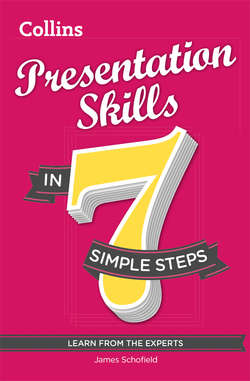Читать книгу Presentation Skills in 7 simple steps - James Schofield - Страница 37
3 Yes, and … / Yes. However, … / No, because … vs. Yes, but …
ОглавлениеWhy is it that when we disagree with something, we often say Yes, but …, which we all know means No? Is it because we don’t want to offend the person we’re talking to? Whatever the reason, it’s dishonest and it can be annoying for your audience. But what do you do when somebody asks a question and it’s plain they’ve missed your message? For example: Why do the staff need extra training with the new software? It’s just an upgrade of the previous version. Surely they can just learn it on their own, can’t they?
Here are some ways of answering a question like that without alienating the listener.
Listen to the question and add a reason to back up your argument: Yes, and if we also provide some training, we can make sure they use all the new features of the upgrade now rather than later.
Listen to the question and politely contradict with a reason: Yes. However, if we provide some training, we can make sure they use all the new features of the upgrade now rather than later.
Contradict with an honest answer: No, because unless we provide some training, they won’t use all the new features of the upgrade straight away.
You should be careful with the last version and only use it when you are confident of your audience. However, it’s a real answer and so is preferable to Yes, but ….
